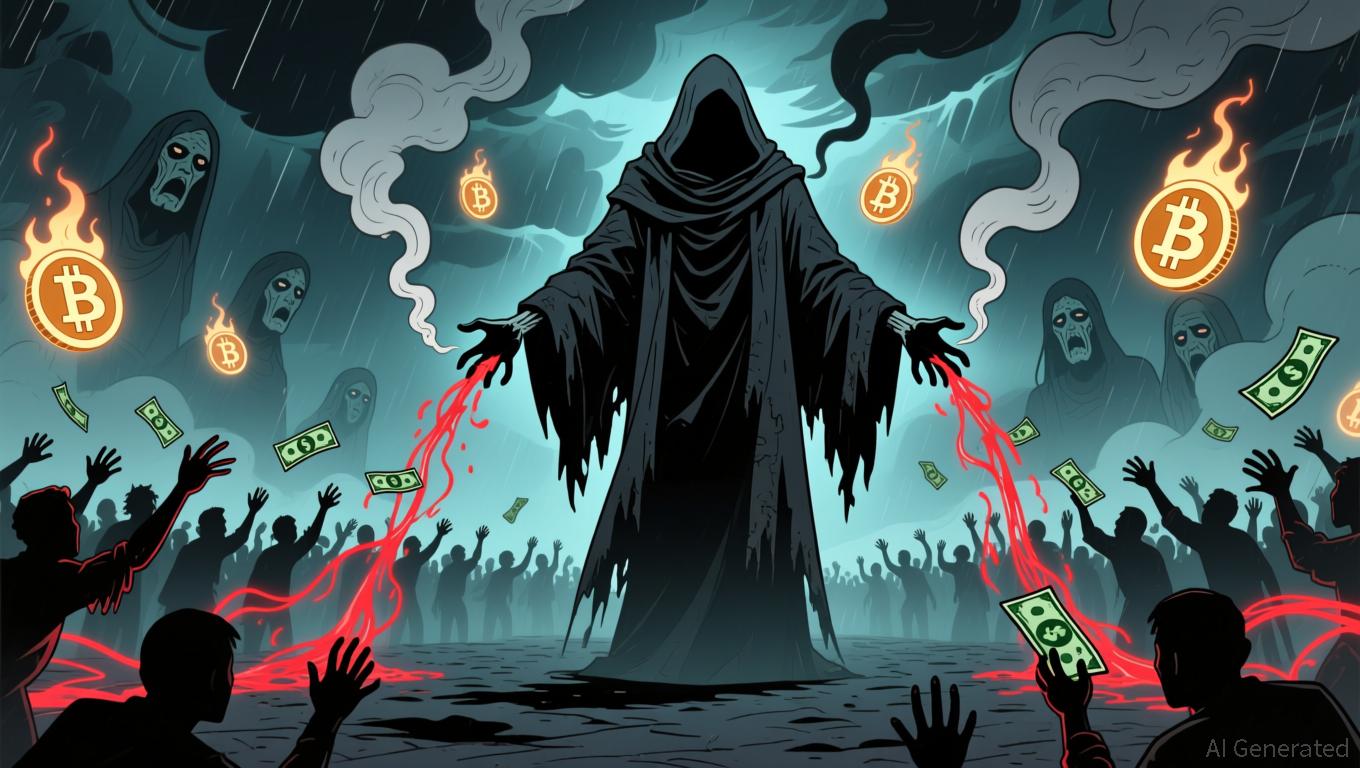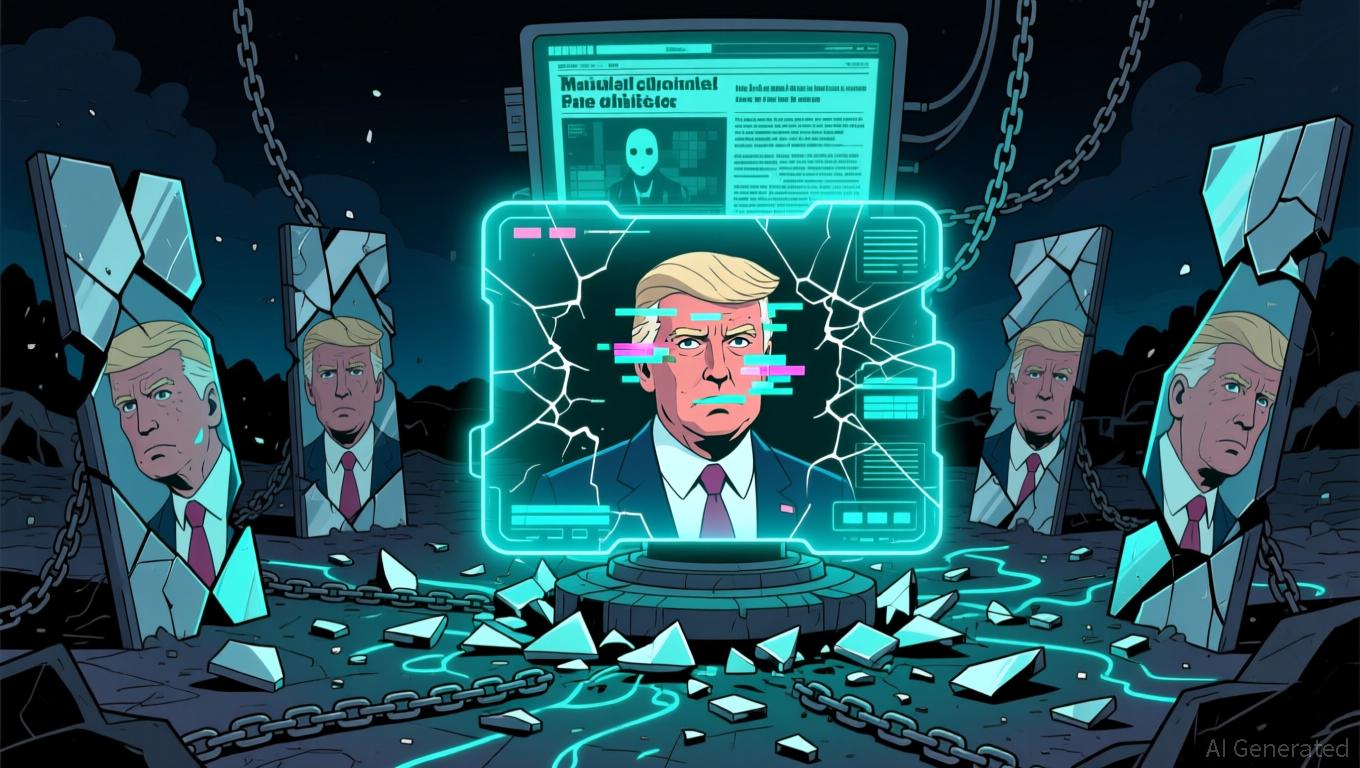JPMorgan and DBS Develop Cross-Chain Bridge to Compete with Stablecoin Leaders
- JPMorgan and DBS Bank launch cross-chain framework for real-time tokenized deposit transfers between institutional clients, bypassing traditional payment systems. - The "interoperability highway" enables 24/7 settlements across public/private blockchains while maintaining consistent token value, expanding cross-border transaction capabilities. - As 1/3 of global banks explore tokenized deposits, the partnership challenges stablecoin dominance by offering institutional-grade cross-chain solutions with red
JPMorgan Chase & Co. and DBS Bank, Singapore’s top financial institution, are working together to develop a cross-chain system that will enable institutional clients to transfer tokenized deposits instantly. This represents a significant evolution in how established banks are building digital asset infrastructure, according to a
This collaboration builds on JPMorgan’s recent ventures into decentralized finance (DeFi), such as issuing a USD deposit token on Coinbase’s Base blockchain, as noted by
This trend underscores intensifying rivalry in the stablecoin and tokenized asset sectors. Although U.S. dollar-backed stablecoins like
At the same time, Asian economies are forging their own approaches. Japan has introduced one of the earliest regulatory frameworks for stablecoins, while Singapore’s DBS is using its alliance with
Some critics point out that tokenized deposits, despite their potential, still face obstacles related to scalability and regulatory compliance. Nonetheless, supporters such as DBS’s Rachel Chew highlight the adaptability these solutions provide for global enterprises, allowing for instant settlements and greater access for institutional clients, according to a Coinpedia report. As the sector continues to develop, the progress of frameworks like those from JPMorgan and DBS could establish new standards for interoperability and institutional use in cross-chain environments.
Disclaimer: The content of this article solely reflects the author's opinion and does not represent the platform in any capacity. This article is not intended to serve as a reference for making investment decisions.
You may also like
Bitcoin News Today: "Driven by Greed: Cryptoqueen Receives 11-Year Prison Term for $6.6 Billion Bitcoin Scam"
- Chinese "cryptoqueen" Zhimin Qian received 11-year prison sentence for orchestrating $6.6B Bitcoin fraud affecting 128,000 Chinese investors. - UK authorities seized 61,000 Bitcoin in landmark seizure, highlighting advanced crypto enforcement capabilities through blockchain analytics. - Qian evaded capture for years while living lavishly in Europe, using stolen funds to buy luxury properties and jewelry under false identities. - Judge condemned her "pure greed" for devastating victims' lives, as case spa

CFTC’s Delicate Balance: Navigating Regulation and Fostering Crypto Innovation
- U.S. Senate bill designates CFTC as primary crypto regulator, granting exclusive spot trading oversight for digital commodities like Bitcoin and Ethereum . - Legislation mandates CFTC-SEC collaboration, imposing operational standards on exchanges while retaining SEC authority over securities-classified assets. - Key challenges include unresolved DeFi regulation debates, CFTC's staffing crisis (only one active commissioner), and election-year legislative delays. - Market reactions are mixed: 25% Polymarke

Dan Tapiero says Bitcoin’s bull run is still on, but a 70% downturn could follow
OpenAI's Rapid AI Push: Prioritizing Pace Over Precaution Triggers Worldwide Criticism and Legal Challenges
- Public Citizen demands OpenAI withdraw Sora 2 over deepfake risks to democracy and nonconsensual imagery. - Sora 2's viral content, including disturbing videos and unauthorized Japanese content, sparks global copyright disputes. - Lawsuits allege ChatGPT caused mental health issues, while a German court rules it infringed song lyrics copyright. - Critics argue OpenAI prioritizes speed over safety, with reactive measures failing to address systemic risks. - The controversies highlight tensions between AI
